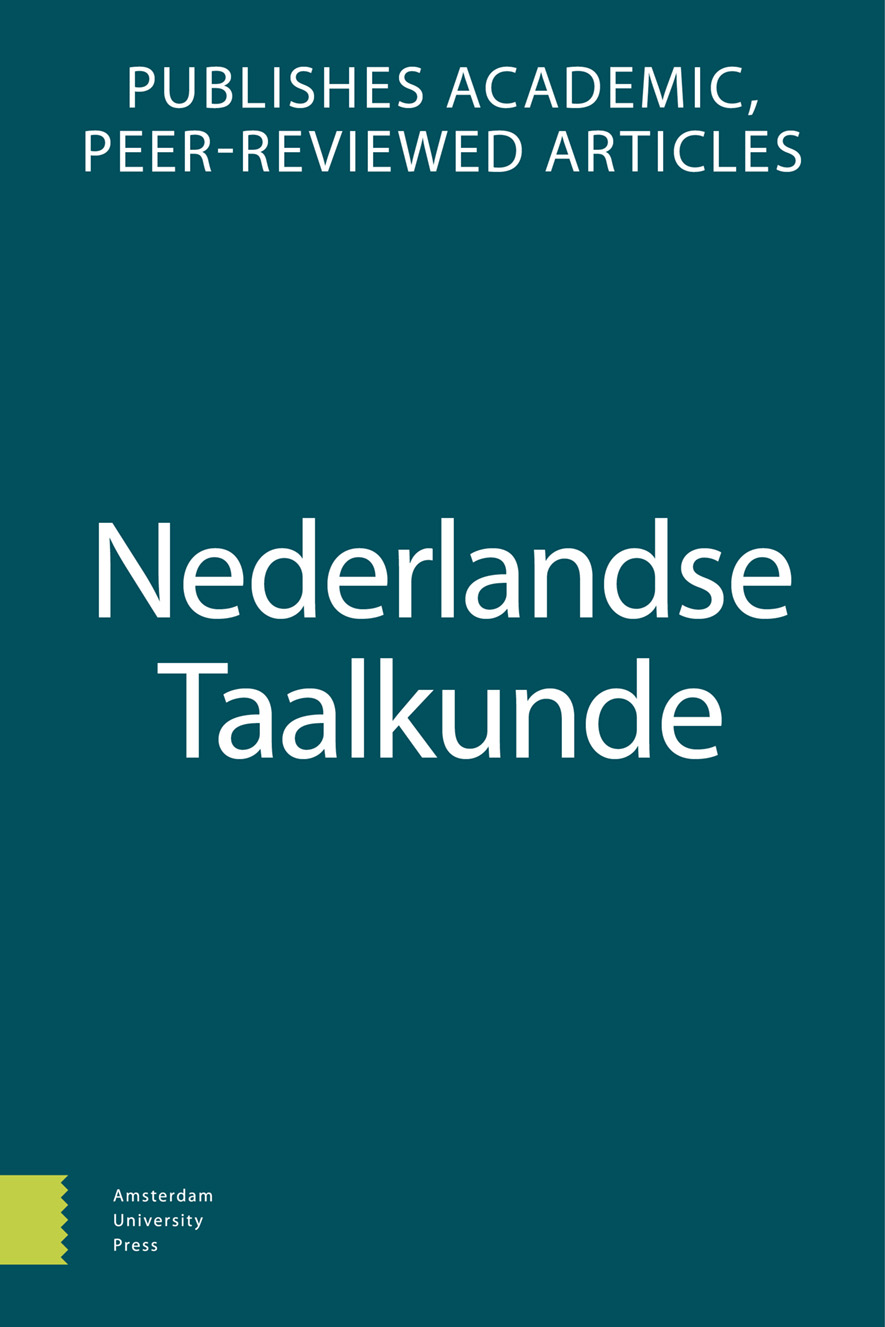-
OAIs het schoolvak Nederlands inspirerender geworden?
De relatie tussen taalkunde en het schoolvak Nederlands opnieuw bekeken
- Amsterdam University Press
- Source: Nederlandse Taalkunde, Volume 25, Issue 2-3, Oct 2020, p. 437 - 445
-
- 01 Oct 2020
Abstract
Abstract
In 2003, Theo Janssen wrote a contribution for Nederlandse Taalkunde [Dutch Linguistics] about the incorporation of linguistic knowledge into the school subject of Dutch Language and Literature, hoping thus to enrich the content of the school subject and making it more inspiring. In our contribution we discuss the great relevance of Janssen's contribution, and we show that his plea is still extremely topical. In addition, we discuss some recent developments, and we particularly draw attention to the complex relationship between academic linguistics and the related school subject.
© 2020 Amsterdam University Press


